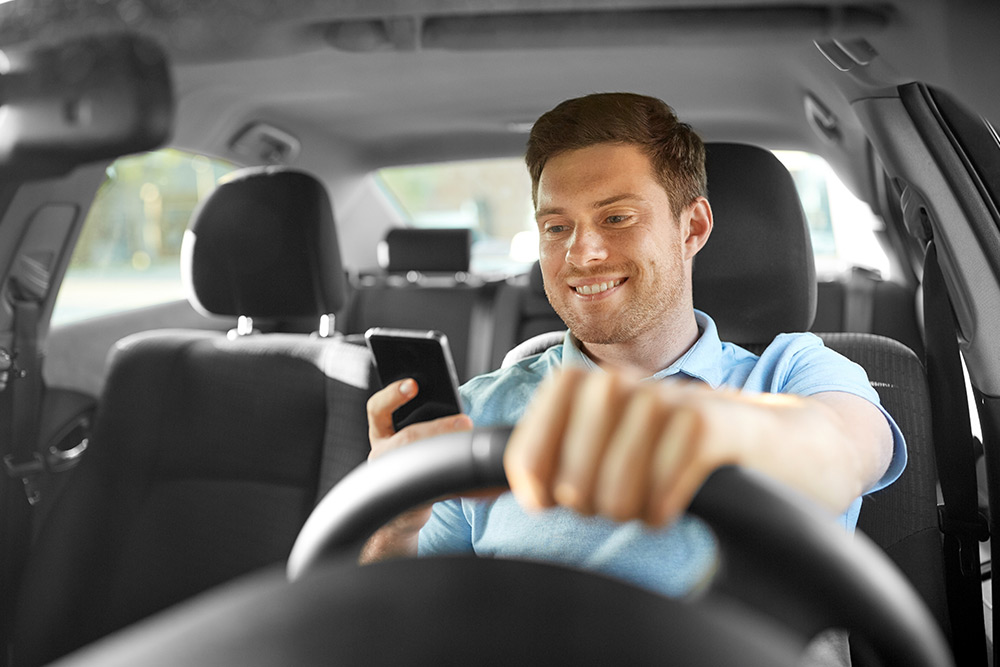Driving safely on the road – 10 ways to manage distractions
Editorial Feature
While distractions are definitely not something to be taken lightly, the good news is that they can be combated. No matter what type of distraction you find yourself experiencing, there are steps to take to ensure they have less of an impact on your drive. Compare the Market spoke to Checklist about the main risks and how you can overcome them.
1. Don’t drive when tired
When we’re tired, all of our senses are dulled. That means reaction speeds decrease and cognitive thinking is impaired. As many as 10-20% of worldwide crashes are thought to be as a result of fatigue. Don’t set out if you find yourself feeling drowsy and be sure to pull over and rest for a bit if you begin to feel that way once you’ve already started your journey.
2. Confidence isn’t key
Similarly, the affirmation that you’re ready to head out and drive without supervision can go to the heads of some, albeit not all, newer drivers. This can cause you to underestimate potential impairments (like tiredness and fatigue), take unnecessary risks, have a false heightened sense of control, and develop bad habits which can plague you for years. Where possible, continue to practice and treat new driving experiences with care.
3. Don’t eat and drive
Try to eat before you leave, park up in the middle of your journey, or plan to have food when you arrive at your final destination. While it’s a timesaver to eat on the go, it’s not worth the risk of removing one, or both of your hands from the wheel.

4. Mobile phones in emergencies only
Make a point of only using a mobile phone in the case of an absolute emergency. Tell yourself before you head out that you won’t be checking the phone until you get to your destination – or are at least parked safely somewhere with the engine off. Remember, using your phone when you drive is illegal, and is never advised.
5. Clear out clutter
Driving with a vehicle full of rubbish can be a distraction in itself. Items will roll around, and you’re unlikely to feel particularly calm in an environment which is messy. Princeton University recently highlighted how a cluttered environment can cause you to lose focus, and even wears out your cognitive function over time. A good remedy for this is to make sure you regularly clear out your car. A tidy car makes for a calm, cool and collected state of mind.
6. Limit your passengers
If you don’t feel comfortable driving with a full car (whether because of confidence or as a result of feeling distracted), politely tell your friends and family that you have a limit for the number of people you can take. If you clearly lay out your reasons as to why they’ll most likely be understanding and happy to accommodate you. Learn to be a good passenger yourself too and set the right example when you travel in your friends’ cars.
7. Never rush
Being late for something isn’t ideal, but it’s better than being involved in an accident because of speeding or reckless driving. Drive as you would normally, even if you have a tight appointment that you’re trying to keep.

8. Understand and eliminate common distractions
One of the best ways to cut out distractions is to identify and overcome them before they have the potential to cause an issue. Do some self-reflection and work out what types of issues you most often fall victim to.
9. Eliminate impairments
While it may seem obvious, even the slightest risk of driving under the influence of alcohol or drugs is another huge risk on the road. The legal limit for drivers in most of the UK is 80 milligrams of alcohol per 100 millilitres of blood, or 50 per every 100 in Scotland. The maximum fine for drink driving in the UK is up to 3 months’ imprisonment, a £2,500 fine, and a possible ban from driving.
10. Make sure you have the right insurance
Having the right kind of car insurance can take a huge weight off your mind. This could help to reduce anxiety, which in turn is likely to improve your overall driving performance. Make sure to browse affordable insurance premiums for younger drivers.
To see your company in any upcoming features we are arranging please email editorial@hurstmediacompany.co.uk







